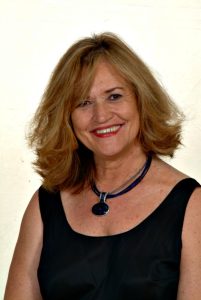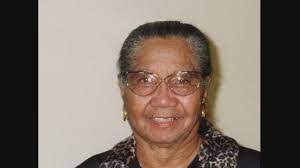Community
Oakland Honors Educator Kitty Kelly Epstein

Community members and leaders recently celebrated the contributions of community activist Kitty Kelly Epstein, who was recognized for 30 years of service in higher education, as well as teaching high school at the Oakland Street Academy and serving as a legislative aide for education in Mayor Ron Dellums’ administration.
The event, hosted by Holy Names University ‘s Teacher Apprenticeship Program (TAP) and the Post Salon Community Assembly, was held Sunday, Sept. 17, at Geoffrey´s Inner Circle in downtown Oakland.
“If you know one thing about Kitty, you know she has been unrelenting on diversifying the teacher workforce for all of her 30 years at Holy Names. She believes the workforce should represent the kids who go to the public schools,” said Dr. Kimberly Mayfield, chair of the Education Department at Holy Names.
Dr. Epstein and educator Dr. Fred Ellis started the Partnership Program, which received a federal grant to recruit teachers and later she worked in the Dellums’ administration to start Teach Tomorrow Oakland “to train Oakland residents to become teachers,” Mayfield said.
Dezie Woods-Jones, who served as the first Black Woman vice mayor of Oakland, interviewed Dr. Epstein on the topic: “Teacher Activism During Neo-Liberal Times: Navigating the System to Save Public Schools.”
“We’ve been friends for many years. I respect her passion and hard work,” said Woods-Jones, who currently serves as state president of Black Women Organized for Political Action (BWOPA)
Among those who attended was Oakland Unified School District Superintendent Kyla Johnson-Trammell, who had been one of Dr. Epstein’s students.
 Dr. Epstein said that she learned some of her lasting life lessons while working as a teacher at the Street Academy, an alternative school that began in 1970s with a federal grant.
Dr. Epstein said that she learned some of her lasting life lessons while working as a teacher at the Street Academy, an alternative school that began in 1970s with a federal grant.
“I learned you can win if you fight hard, if you strategize and stick together,” she said. “The school was supposed to die after five years, and it has been going for 40 years.”
She said she learned from Street Academy’s Black and Latino teachers that schools could not be good unless the teachers were representative of their students. “I learned that in life, not as a slogan,” she said.
Dr. Epstein said the roots of national and local crises in public schools lie in “neo-liberalism, which is a different word for capitalism. It’s just capitalism with the gloves off.”
Whether in education, housing, healthcare or military spending, “The big capitalists have to make a higher and higher amount of profit every year. But some of what actually needs to be done in the community, such as building a grocery store in the flatlands, won’t make them a large profit, and so they just don’t do those things,” she said.
“The biggest changes are national and international plans to make money by turning what has been a public dollar into a private dollar.”
She said the issue is larger than the debate over charter schools. There are some good charter schools, she said, but “the big plan is to privatize the money that is spent for public education.”
“Schools have never been good for Black and Latino kids,” she said, and if communities hope to win in the fight against the privatizers, “we must have a much more integrated campaign” that is committed to social equity.
California Black Media
Gov. Newsom Goes to Washington to Advocate for California Priorities
Gov. Gavin Newsom traveled to Washington, D.C., for meetings with senior Biden-Harris Administration officials and members of California’s congressional delegation. During the week, he pushed for increased resources to improve public safety and quality of life in California.

By Bo Tefu, California Black Media
Gov. Gavin Newsom traveled to Washington, D.C., for meetings with senior Biden-Harris Administration officials and members of California’s congressional delegation.
During the week, he pushed for increased resources to improve public safety and quality of life in California.
“California is continuing our work to secure additional tools and resources to improve access to health care, clean air and water, and secure critical funding to support communities recovering from disasters,” said Newsom.
At the White House, Newsom met with President Joe Biden and key officials, advocating for disaster relief funding, healthcare expansion, and environmental protection. He also engaged in discussions with senior Biden-Harris officials, including Interior Secretary Deb Haaland, to address water quality improvements and the San Luis Dam project, which will support water supplies for two million Californians.
“Building on our strong partnership with the Biden-Harris Administration, California is working closely with the White House over the next two months to deliver the critical protections and resources our communities need,” Newsom said.
On Capitol Hill, Newsom met with California Senators Alex Padilla and Adam Schiff, along with other Congressional leaders, to emphasize the need to approve pending disaster funding, healthcare programs, and environmental protections. He also previewed California’s upcoming special session to proactively address potential federal challenges when President-elect Donald Trump is sworn into office.
Newsom’s discussions also focused on securing Medicaid waivers from the Center for Medicare & Medicaid Services (CMS) to enhance behavioral health services and reduce homelessness. The state seeks approval for the BH-CONNECT waiver, which would address behavioral health and homelessness, and the MCO Tax Waiver, which would provide over $20 billion for Medi-Cal to improve healthcare access.
Additionally, California is pushing for Clean Air Act waivers from the U.S. Environmental Protection Agency (EPA), which are crucial for enforcing air quality regulations. These measures are projected to prevent 11,000 premature deaths and provide $116 billion in health benefits over the next three decades, according to the Governor’s office.
California Black Media
California to Offer $43.7 Million in Federal Grants to Combat Hate Crimes
Gov. Gavin Newsom has announced that 311 California nonprofit and faith-based organizations, including those representing communities targeted by hate crimes, will receive over $43.7 million in federal funding through the Nonprofit Security Grant Program. The funding aims to enhance security measures such as reinforced doors, access control systems, and lighting to protect against hate-based violence.

By Bo Tefu, California Black Media
Gov. Gavin Newsom has announced that 311 California nonprofit and faith-based organizations, including those representing communities targeted by hate crimes, will receive over $43.7 million in federal funding through the Nonprofit Security Grant Program.
The funding aims to enhance security measures such as reinforced doors, access control systems, and lighting to protect against hate-based violence.
“An attack against any community is an attack against our entire state and our values. We will protect the ability of every Californian to worship, love, and gather safely without fear of hate or violent attacks. California is continuing to safeguard all communities, including those most at risk,” said Newsom.
California receives 10% of the national allocation, the highest of any state. This funding comes in addition to $76 million in state funding for similar security improvements announced in July 2024. In total, California has invested over $230 million since 2015 to safeguard vulnerable communities.
“California is dedicated to helping our communities stay safe from violent hate crimes and get access to essential financial funding to support those efforts,” said Cal Office of Emergency Services (OES) Director Nancy Ward.
The grants are particularly important as hate crimes, especially against Jewish, Muslim, LGBTQ+, and Black communities, have seen an increase. In response, California has also launched initiatives like the CA vs Hate hotline and website, providing a platform for reporting hate incidents anonymously. Newsom’s administration continues to prioritize the safety of all Californians, with ongoing efforts to combat discrimination and hate violence.
California Black Media
California Reports First Case of Mpox in the United States
On Nov. 16, the California Department of Public Health (CDPH), reported the first known case of clade 1 Mpox, previously known as Monkeypox, in the United States. However, the risk to the public remains low, according to the CDPH.

By Bo Tefu, California Black Media
On Nov. 16, the California Department of Public Health (CDPH), reported the first known case of clade 1 Mpox, previously known as Monkeypox, in the United States.
However, the risk to the public remains low, according to the CDPH.
“This case was confirmed in an individual who recently traveled from Africa and is related to the ongoing outbreak of clade I mpox in Central and Eastern Africa,” reads a statement the CDPH released.
According to the DDPH, “The affected individual received health care in San Mateo County based on their travel history and symptoms. The individual is isolating at home and recovering.”
Public health workers are also conducting a contact tracing exercise and reaching out to people who have been in close proximity to the affected person.
“The mpox specimens from the traveler are being sent to the CDC for further laboratory testing,” the CDPH press release continues.
Californians can take a number of steps to prevent Mpox. Here’s more information:
Preventing Mpox Infection
It appears clade I mpox spreads in a similar manner as clade II mpox, through close (skin-skin), intimate and sexual contact. The identification of a potentially more severe mpox version in the United States is a good reminder for individuals who have certain risk factors to take preventive action, including:
- Getting vaccinated if you may be at risk for mpox. For the greatest protection, make sure you get both doses of the vaccine. Find mpox vaccine (JYNNEOS) near you.
- Taking precautions if you were exposed to mpox. Get the mpox vaccine before symptoms develop and consider avoiding intimate contact with others for 21 days. Watch yourself for symptoms and get tested if they develop.
- Preventing spread if you have been told you have mpox. Avoid contact with others until the rash is healed, clean and disinfect shared areas in the home, and notify people who may have been exposed.
- Talking to your sexual partner(s).
- Avoiding skin-to-skin contact with those who have a rash or sores that look like mpox.
- Not sharing items with someone who has mpox.
- Washing your hands often.
- Protecting yourself when caring for someone with mpox by using masks, gowns and gloves.
Visit the CDPH website to learn more about Mpox with Sexual Health Toolkits and a Campaign Materials Page.
-

 Activism4 weeks ago
Activism4 weeks ago‘Jim Crow Was and Remains Real in Alameda County (and) It Is What We Are Challenging and Trying to Fix Every Day,’ Says D.A. Pamela Price
-

 Activism4 weeks ago
Activism4 weeks agoOakland Post: Week of October 30 – November 5, 2024
-

 Alameda County3 weeks ago
Alameda County3 weeks agoD.A. Price Charges Coliseum Flea Market Vendors in Organized Retail Theft Case
-

 Activism4 weeks ago
Activism4 weeks ago‘Criminal Justice Reform Is the Signature Civil Rights Issue of Our Time,’ says D.A. Pamela Price
-

 Activism2 weeks ago
Activism2 weeks agoLIVE! — TOWN HALL ON RACISM AND ITS IMPACT — THURS. 11.14.24 5PM PST
-

 Bay Area3 weeks ago
Bay Area3 weeks agoOakland Mayor Sheng Thao’s Open Letter to Philip Dreyfuss, Recall Election’s Primary Funder
-

 Activism4 weeks ago
Activism4 weeks ago“Two things can be true at once.” An Afro-Latina Voter Weighs in on Identity and Politics
-

 Bay Area3 weeks ago
Bay Area3 weeks agoPoll Shows Strong Support for California’s Controversial Prop 36 Crime Initiative























































